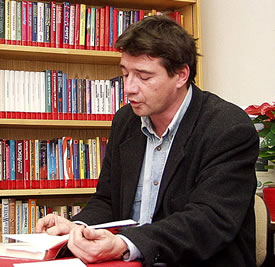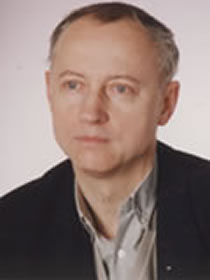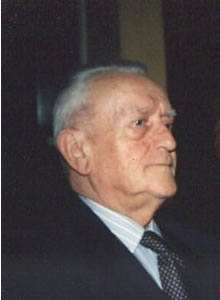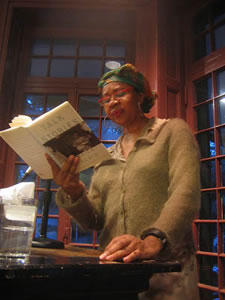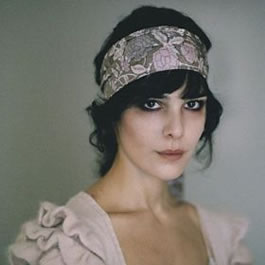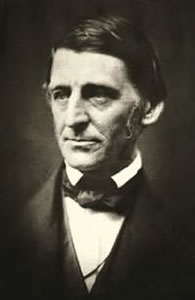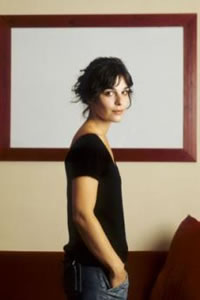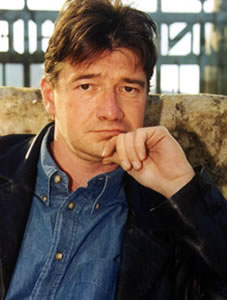De Duitse schrijver Friedrich Dieckmann werd geboren op 25 mei 1937 in Landsberg an der Warthe.
Uit: Freiheit ist nur in dem Reich der Träume (Schillers Jahrhundertwende)
„Der Achtunddreißigjhrige, der, ein Windlicht in der Hand, am 11. Oktober 1798 durch das im Abenddämmer liegende Weimar geht, um seinQuartier aufzusuchen, die Gästewohnung im Schloß,
wo Frau und Schwägerin auf ihn warten, – dieser hochgewachsene, etwas vornübergeneigt laufende Mann mit den blauen Augen, der schmalen, weit vorspringenden Nase, dem starken Kinn, kommt aus dem Theater, er hat der Generalprobe seines neuen, erst vor vier Tagen fertig gewordenen Stückes beigewohnt, »Wallensteins Lager«. Aber was heißt beigewohnt? Er hat es gesehen und gehört, zumeist aus dem Zuschauerraum, dem von Grund auf erneuerten, aber manchmal auch aus der Kulisse; zwischendurch hatte er dem Regisseur noch ein paar Textänderungen an die Hand gegeben, die ihm am Vormittag, ehe er in Jena mit Lotte und Caroline in die Kutsche gestiegen war, in den Sinn gekommen waren. Denn dem Regisseur, der zugleich der Intendant und beinahe auch der Bühnenbildner ist, seinem Freund, Kollegen, Kooperator, dem Geheimen Rat, Weimars oberster Kunstinstanz, war erst vor einer Woche noch etwas Lustiges zu seinem Stück eingefallen, eine drastische Priester-Ermahnung an die zügellose Soldateska.
Das hatte er ganz schnell machen und abliefern müssen, und es war, als es schon einstudiert wurde, noch gar nicht fertig gewesen.
Und nicht nur das war noch nicht fertig gewesen in der letzten Woche, ein Eingangslied für den Abend hatte auch noch gefehlt. Hätten sie besser dieses alte Volkslied von der Zerstörung Magdeburgs nehmen sollen, das der Goethe in petto gehabt hatte, mitsamt der Melodie? »O Magdeburg die Stadt, die schöne Mädchen hat« – elf Strophen hatte es gehabt und war so traurig-schön, so herzzerreißend-schicksalsergeben gewesen, daß er’s beiseite gelassen hatte. Es paßte nicht zu seinemStück, das auf einen andern, herzhaften Ton gestimmt war. Zusammen hatten sie versucht, ein
passendes Lied zu schreiben, jener war mit ein paar Strophen angekommen, er hatte noch einige zugesetzt – es war simpel genug eraten, um fü diese Landsknechtsschar zu passen: »Es leben
die Soldaten, der Bauer gibt den Braten . . .«
Friedrich Dieckmann (Landsberg an der Warthe, 25 mei 1937)
De Oostenrijkse schrijver en essayist Egyd Gstättner werd geboren op 25 mei 1962 in Klagenfurt. Zie ook mijn blog van 25 mei 2007.
Uit: Der letzte Tag des Carlo Michelstaedter
„Das Studium war meine Galgenfrist. Die ist jetzt zu Ende.
Heute bin ich dreiundzwanzig, morgen bin ich Doktor, und übermorgen fängt das Leben an. Aber wie soll ich das machen: Leben? Was heißt das und wie geht das: Leben? Ich bin dazu weder qualifiziert noch ausgerüstet, Vladimiro! Ich müsste, um mein Leben zu leben, bei null anfangen mit meinen dreiundzwanzig Jahren. Das Leben ist etwas Unmögliches. Allein durch ihre Art zu leben, haben mich meine Eltern gelehrt, daß das Leben unheimlich kompliziert und widerwärtig ist. Nur das widerwärtige Leben ist das richtige Leben, das wahre, das eigentliche. Durch ihre Art zu leben haben mich meine Eltern gelehrt, daß das Leben etwas so Schwieriges ist, daß man es praktisch nicht schaffen kann: Ich jedenfalls auf gar keinen Fall. Ich kann ein bisschen zeichnen. Aber leben kann ich nicht. Zeichnen ist etwas für Kinder. Alle Kinder zeichnen. Und alle Erwachsenen hören zu zeichnen auf. Man müsste sich die Frage stellen, warum ich mit dreiundzwanzig Jahren noch immer nicht zu zeichnen aufgehört habe. Ich kann das Grab meines Bruders pflegen und eine Doktorarbeit schreiben. Aber leben kann ich nicht. Ich kann mit Paula, Fulvia und Argia ein paar Tage nach Piran fahren, Scampi essen und baden gehen. Aber leben kann ich nicht.
Nur die hervorragendsten Repräsentanten der Menschheit schaffen es, ihr schwieriges Dasein zu bewältigen, indem sie Friseure werden. Die Philosophie ist dazu da, dass der Friseur während des Frisierens etwas zu plaudern hat. Meine Mutter und mein Vater sind unfehlbar: jedes Mal, wenn sie in ihrem Leben vor einer Entscheidung gestanden sind, haben sie mit Weisheit und Verstand die richtige – jedenfalls bestmögliche – Entscheidung getroffen.”

Egyd Gstättner (Klagenfurt, 25 mei 1962)
De Franse schrijfster Claire Castillon werd geboren op 25 mei 1975 in Neuilly-sur-Seine. Zie ook mijn blog van 25 mei 2007 en ook mijn blog van 25 mei 2008.
Uit: Insecte
“Elle est belle, au-dessus de mon berceau, devant l’école, dans la voiture garée au coin, et puis maintenant, vingt ans plus tard, dans le café où elle m’attend pour boire un thé, vert, c’est à la mode, il paraît que ça peut faire maigrir, alors elle essaye, des fois qu’elle perde un os ou deux.
(…)
Je marche vers elle, il va bien se produire un drame sur la route, m’arriver quelque chose, ou au moins une idée, depuis le temps que je la cherche, cette idée, pour la sauver et me perdre. Je marche et, quandj’arriverai, elle aura des ampoules, c’est ainsi qu’on fonctionne. Quandj’ai mal au ventre, on retire son colon ; quandj’ai mal à la tête, on lui trouve une bille cachée derrière un oeil. Sij’ai mal quelque part, aussitôt ma mère meurt. Sij’ai peur, elle appelle ; sij’ai soif, elle transpire ; on n’a pas vu donner autant et sans retour. Si je prends, elle donne. Si je marche, elle accourt. Si je pars, elle revient. Tiens,j’essaye. Ce serait bien.”
Claire Castillon (Neuilly-sur-Seine, 25 mei 1975)
De Amerikaanse schrijfster en feminste Eve Ensler werd op 25 mei 1953 in New York geboren.
Uit: The Good Body
„In the midst of a war in Iraq, in a time of escalatingglobal terrorism, when civil liberties are disappearingas fast as the ozone layer, when one out of threewomen in the world will be beaten or raped in herlifetime, why write a play about my stomach?
Maybe because my stomach is one thing I feel Ihave control over, or maybe because I have hopedthat my stomach is something I could get controlover. Maybe because I see how my stomach has cometo occupy my attention, I see how other women’sstomachs or butts or thighs or hair or skin have cometo occupy their attention, so that we have very littleleft for the war in Iraq—or much else, for that matter.When a group of ethnically diverse, economicallydisadvantaged women in the United States wasrecently asked about the one thing they wouldchange in their lives if they could, the majority ofthese women said they would lose weight. Maybe Iidentify with these women because I have boughtinto the idea that if my stomach were flat, then Iwould be good, and I would be safe. I would be protected.I would be accepted, admired, important,loved. Maybe because for most of my life I have feltwrong, dirty, guilty, and bad, and my stomach isthe carrier, the pouch for all that self-hatred. Maybebecause my stomach has become the repository formy sorrow, my childhood scars, my unfulfilled ambition,my unexpressed rage. Like a toxic dump, it iswhere the explosive trajectories collide—the Judeo-Christian imperative to be good; the patriarchal mandate that women be quiet, be less; the consumer-stateimperative to be better, which is based on the assumptionthat you are born wrong and bad, and thatbeing better always involves spending money, lots ofmoney. Maybe because, as the world rapidly dividesinto fundamentalist camps, reductive sound bites, andpolarizing platitudes, an exploration of my stomachand the life therein has the potential to shatter thesedangerous constraints.“

Eve Ensler (New York, 25 mei 1953)
De Amerikaanse schrijver Robert Ludlum werd geboren in New York op 25 mei 1927. Zie ook mijn blog van 25 mei 2007 en ook mijn blog van 25 mei 2008
Uit: The Bourne Sanction
“Who is David Webb?”
Moira Trevor, standing in front of his desk at Georgetown University, asked the question so serio
usly that Jason Bourne felt obliged to answer.
“Strange,” he said, “no one’s ever asked me that before. David Webb is a linguistics expert, a man with two children who are living happily with their grandparents” — Marie’s parents — “on a ranch in Canada.”
Moira frowned. “Don’t you miss them?”
“I miss them terribly,” Bourne said, “but the truth is they’re far better off where they are. What kind of life could I offer them? And then there’s the constant danger from my Bourne identity. Marie was kidnapped and threatened in order to force me to do something I had no intention of doing. I won’t make that mistake again.”
“But surely you see them from time to time.”
“As often as I can, but it’s difficult. I can’t afford to have anyone following me back to them.”
“My heart goes out to you,” Moira said, meaning it. She smiled. “I must say it’s odd seeing you here, on a university campus, behind a desk.” She laughed. “Shall I buy you a pipe and a jacket with elbow patches?”
Bourne smiled. “I’m content here, Moira. Really I am.”
“I’m happy for you. Martin’s death was difficult for both of us. My anodyne is going back to work full-bore. Yours is obviously here, in a new life.”
“An old life, really.” Bourne looked around the office. “Marie was happiest when I was teaching, when she could count on me being home every night in time to have dinner with her and the kids.”
“What about you?” Moira asked. “Were you happiest here?”
= cloud passed across Bourne’s face. “I was happy being with Marie.” He turned to her. “I can’t imagine being able to say that to anyone else but you.”
Robert Ludlum (25 mei 1927 – 12 maart 2001)
Matt Damon al Jason Bourne
Zie voor alle bovenstaande schrijvers ook mijn blog van 25 mei 2009.
De Amerikaanse dichter Theodore Huebner Roethke werd geboren in Saginaw, Michigan op 25 mei 1908. Zie ook mijn blog van 25 mei 2009 en ook mijn blog van 25 mei 2008. en ook mijn blog van 25 mei 2007 en ook mijn blog van 25 mei 2006.
Child on Top of a Greenhouse
The wind billowing out the seat of my britches,
My feet crackling splinters of glass and dried putty,
The half-grown chrysanthemums staring up like accusers,
Up through the streaked glass, flashing with sunlight,
A few white clouds all rushing eastward,
A line of elms plunging and tossing like horses,
And everyone, everyone pointing up and shouting!
She
I think the dead are tender. Shall we kiss? —
My lady laughs, delighting in what is.
If she but sighs, a bird puts out its tongue.
She makes space lonely with a lovely song.
She lilts a low soft language, and I hear
Down long sea-chambers of the inner ear.
We sing together; we sing mouth to mouth.
The garden is a river flowing south.
She cries out loud the soul’s own secret joy;
She dances, and the ground bears her away.
She knows the speech of light, and makes it plain
A lively thing can come to life again.
I feel her presence in the common day,
In that slow dark that widens every eye.
She moves as water moves, and comes to me,
Stayed by what was, and pulled by what would be.
Theodore Roethke (25 mei 1908 – 1 augustus 1963)
De Franse schrijver en historicus Georges Bordonove werd geboren in Enghien-les-Bains op 25 mei 1920.
Uit: La vie quotidienne de Napoléon en route vers Saint-Hélène
“Combien j’ai été fou de me jeter entre vos mains! Je m’étais fait une fausse idée de votre caractère national; j’avais UNE OPINION ROMANESQUE de la nation anglaise. A cette idée se joignait un peu d’orgueil. J’aurais rougi de me livrer à l’un des souverains dont j’avais conquis les États, et dans les capitales desquels j’étais entré en vainqueur; c’est ce qui m’a déterminé à me confier à vous que je n’avais jamais subjugués. Docteur, je suis bien puni de la haute opinion que j’avais conçue de votre nation!”
Georges Bordonove (25 mei 1920 – 16 maart 2007)
De Amerikaanse schrijfster Jamaica Kincaid (eig. Elaine Cynthia Potter Richardson) werd geboren in Saint John’s, Antigua en Barbuda, op 25 mei 1949.
Uit: Small Place
„If you go to Antigua as a tourist, this is what you will see. If you come by aeroplane, you will land at the V. C. Bird International Airport. Were Cornwall (V. C.) Bird is the Prime Minister of Antigua. you may be the sort of tourist who would wonder why a Prime Minister would want an airport named after him—why not a school, why not a hospital, why not some great public monument? You are a tourist and you have not yet seen a public monument in Antigua. As your plane descends to land, you might say, What a beautiful island Antigua is—more beautiful than any of the other islands you have seen, and they were very beautiful, in their way, but they were much too green, much too lush with vegetation, which indicated to you, the tourist, that they got quite a bit of rainfall, and rain is the very thing that you, just now, do not want, for you are thinking of the hard and cold and dark and long days you spent working in North America (or, worse, Europe), earning some money so that you could stay in this place (Antigua) where the sun always shines and where the climate is deliciously hot and dry for the four to ten days you are going to be staying there; and since you are on your holiday, since you are a tourist, the thought of what it might be like for someone who had to live day in, day our in a place that suffers constantly from drought, and so has to watch carefully every drop of fresh water used (while at the same time surrounded by a sea and an ocean—the Caribbean Sea on one side, the Atlantic Ocean on the other), must never cross your mind.”

Jamaica Kincaid (Saint John’s, 25 mei 1949)
De Canadese schrijver William Patrick Kinsella werd geboren op 25 mei 1935 in Edmonton, Alberta.
Uit: Waiting on Lombard Street
„There is an old fashioned I-HOP on Lombard Street in San Francisco, probably one of the originals, blue roof, A-Frame, from the days when they were known as International House of Pancakes.
Driving south on a hot afternoon, fresh out of both air conditioning and Diet Coke, we decided to stop for refreshment. A pleasant young woman greeted us and escorted us to a booth, my red-headed lady and I, brought us water and menus and an assurance that a waitress would soon be with us. She may have even supplied us with a name, “Barcelona will be your waitress this afternoon,” I prefer waitresses who don’t have names, I prefer an arm clutching a pencil with a yellow pad at the end of it.
It was about 3:30 in the afternoon, Bermuda Triangle time in restaurants: the last of the lunch crowd has lurched out, belching martini fumes, time to wash the floors and scrape the food off the windows.
We decided on what we wanted, I chose a chocolate malt, my red- headed lady decided on iced tea, then we visited the washrooms one at a time so in case the waitress came one of us would be there to give her the order.
The waitress did not appear. She never appeared.
There came a point when we simultaneously realized we had been waiting an extraordinarily long time for service. We stared around. There was only one other occupied table, far away. The silence was eerie. It reminded me of the Mary Deare. Food steaming on some tables, but no one in sight, especially a waitress.
We waited a few more minutes. We finished our water.
I really wanted a chocolate malt. No one came or went.
“In another dimension, in another I-HOP, perhaps in Sacramento, or San Luis Obispo, or maybe even Honolulu, a tall, blond man and his red-headed lady have just been served a chocolate milkshake and an iced tea,” I said. “They’ve drunk them up, received their check, and are now going to try and sneak out without paying. Look furtive,” I said, standing up. “I’m going to walk sideways down the aisle. Try to look as if you have a sugar dispenser in your purse.”

W. P. Kinsella (Edmonton, 25 mei 1935)
Zie voor de drie bovenstaande schrijvers ook mijn blog van 25 mei 2009.
De 25e mei is een zeer vruchtbare schrijversdag. Zie voor nog meer schrijvers ook mijn vorige blog van vandaag.













